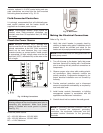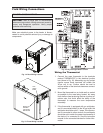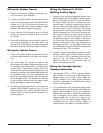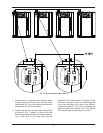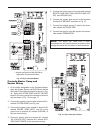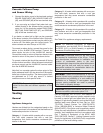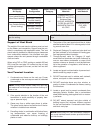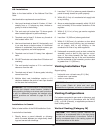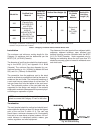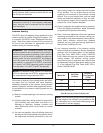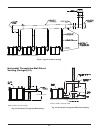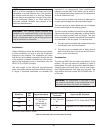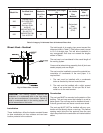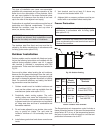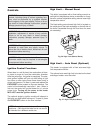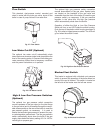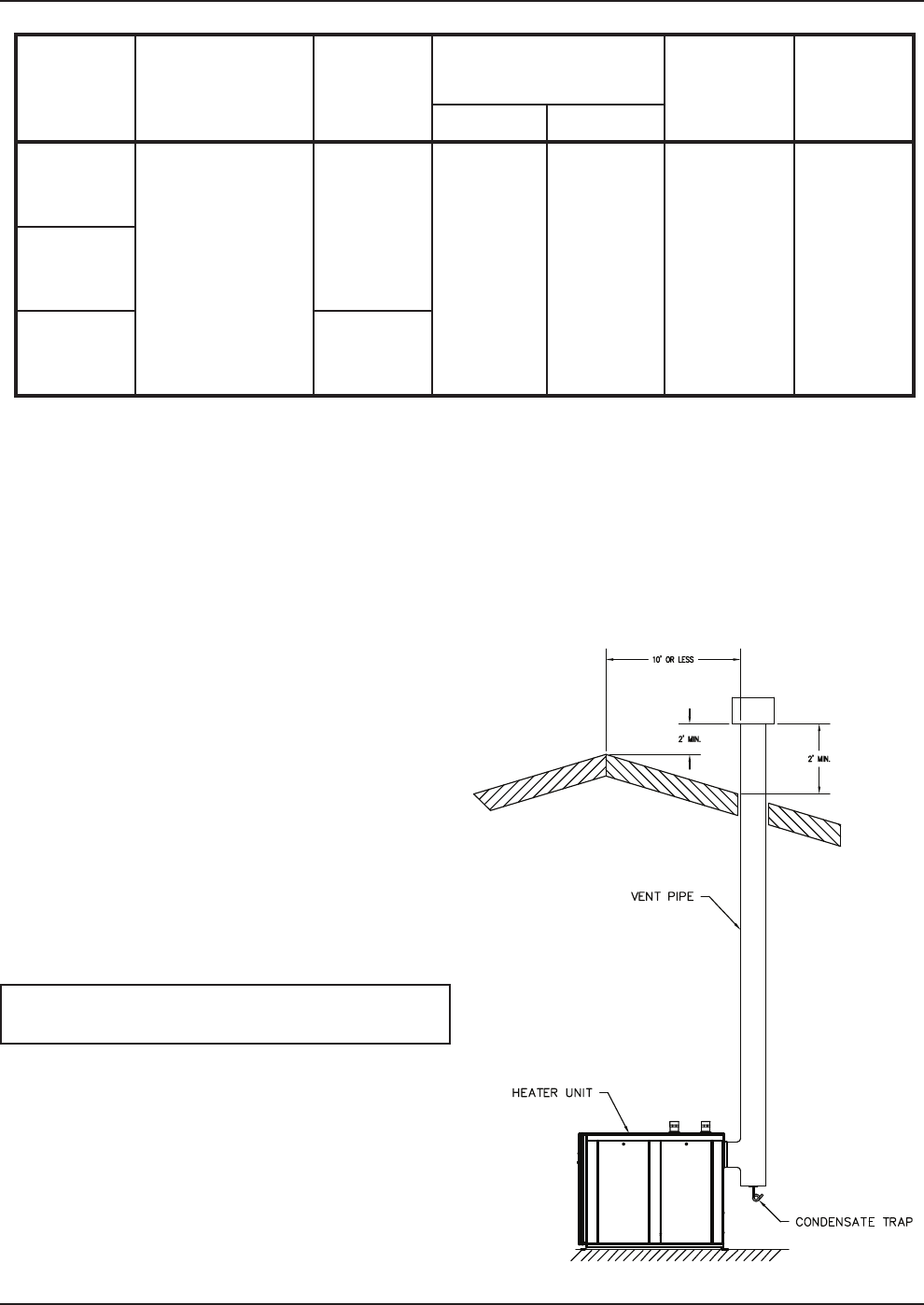
26
Table L: Category IV Vertical Vent & Vertical Direct Vent
1
Vent lengths are based on a lateral length of 2 ft. Refer to the latest edition of the NFGC for further details.
* Subtract 10 ft per elbow. Max. 4 elbows.
Termination
The vent terminal should be vertical and should termi-
nate outside the building at least 2 ft above the highest
point of the roof that is within 10 ft. The vent cap
should have a minimum clearance of 4 ft horizontally
from and in no case above or below (unless a 4 ft hori-
zontal distance is maintained) electric meters, gas
meters, regulators and relief equipment.
Fig. 20: Vertical Venting
Installation
The maximum and minimum venting length for this
Category IV appliance shall be determined per the
NFGC (U.S.) or B149 (Canada).
The diameter of vent flue pipe should be sized accord-
ing to the NFGC (U.S.) and Appendix B of B149
(Canada). The minimum flue pipe diameter for con-
ventional venting is: 4 in. (102mm) for Models 300 and
500, and 6 in. (152mm) for Model 850.
The connection from the appliance vent to the stack
must be as direct as possible and shall be the same di-
ameter as the vent outlet. The horizontal breaching of
a vent must have an upward slope of not less than 1/4
inch per linear foot from the heater to the vent termi-
nal. The horizontal portions of the vent shall also be
supported for the design and weight of the material
employed to maintain clearances and to prevent physi-
cal damage or separation of joints.
NOTE: A vent adapter (field-supplied) may be re-
quired to connect the Category IV vent to the boiler.
M
odel No.
Certified Vent
Material
V
ent and
Intake Air
Vent Size
(in.)
Vertical Vent Height
1
(ft)
C
ombustion
Air Intake
Pipe
Material
Vertical Air
I
nlet Max.
Length* (ft)
Min. Max.
300
(Canada Only:
ULC-S636 PVC
and CPVC)
Stainless Steel,
AL29-4C,
ANSI/ASTM D1785
Sch 40 PVC,
ANSI/ASTM F441
Sch 40 CPVC
4
0 100
Galvanized
Steel,
PVC, ABS,
CPVC
100500
850 6
The distance of the vent terminal from adjacent public
walkways, adjacent buildings, open windows and
building openings must be consistent with the NFGC
(U.S.) or B149 (Canada). Vents supported only by
flashing and extending above the roof more than 5 ft
should be securely guyed or braced to withstand snow
and wind loads.



